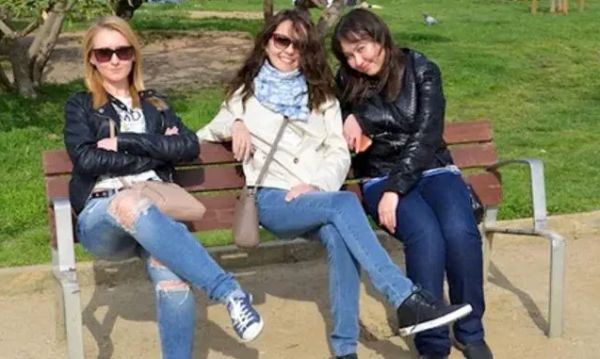Pregnancy is a transformative and magical experience for many women. However, for Eliana Rodriguez, her remarkable journey was marred by hurtful comments and body-shaming. Undeterred by the pregnancy stigma, this strong-willed mother took pride in her growing belly and stood up against the negativity.

At 4’11” with a shorter torso, Rodriguez knew that her body might appear different during pregnancy. Yet, she never expected the avalanche of comments she received. People couldn’t help but make snarky remarks about her “gigantic” baby bump, suggesting that she might be expecting twins or even questioning if there was another baby hiding inside.
Instead of letting these hurtful comments bring her down, Rodriguez chose to focus on the health and happiness of her unborn child. She reassured everyone that both her pregnancy and her child were perfectly healthy, despite her larger-than-average belly.
“I had large pregnancies; both of my children were born weighing 8.3 pounds. My 3-year-old daughter Sofia was 19.5 inches at birth, while my new boy was 20.5 inches,” Rodriguez proudly shared.
While Rodriguez could easily ignore the trolls on social media, it was more challenging to face the nosiness of people in person. However, she never responded rudely. Instead, she acknowledged their curiosity and simply said, “Yes, I am huge, and it’s hard.”
As a business entrepreneur specializing in health and wellness, Rodriguez sought answers to understand why her belly was bigger compared to others. Her doctors explained that her smaller stature and shorter torso were the probable causes. Armed with this knowledge, Rodriguez embraced her journey and shared her joy with those around her.
During her pregnancy, Rodriguez carried an abundance of amniotic fluid. This excess fluid, called “polyhydramnios,” occurs in only 1% to 2% of pregnancies. Despite potentially leading to preterm labor, Rodriguez’s doctors assured her that she didn’t have this condition. They carefully monitored the baby’s size and fluid levels, ensuring the health and safety of both mother and child.
While polyhydramnios can result from various factors such as maternal diabetes or fetal structural anomalies, these were not issues Rodriguez encountered. Her larger belly was simply a result of her body’s unique circumstances, including fetal macrosomia, maternal obesity, or Diastasis Recti, which is the separation of abdominal muscles during pregnancy.
Amidst the intrusive questions and remarks, Rodriguez expressed her desire for people to refrain from body-shaming and making insensitive comments during pregnancy. She emphasized how such remarks can deeply impact women who may already be dealing with prenatal or postpartum depression, further amplifying their struggles.
As a religious woman, Rodriguez urged others to embrace compassion and kindness. She felt deeply for those who used cruel words, emphasizing that empathy should prevail over judgment.

Let Eliana Rodriguez’s journey serve as a reminder that every pregnancy is unique and beautiful in its own way. Let us celebrate the strength, joy, and resilience of mothers like her, supporting them every step of the way.





